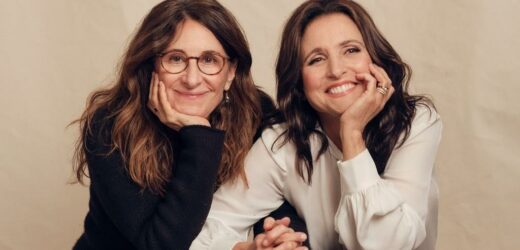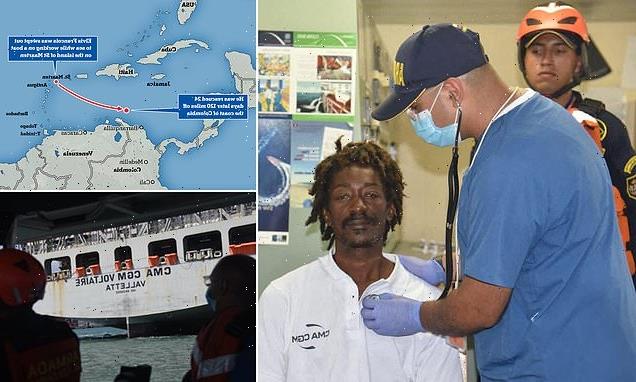It’s only fitting that the Sundance Film Festival would mark its in-person return with a new movie from one of its most noted directors – Nicole Holofcener, the indie stalwart whose first film “Walking and Talking” put her on the map with its 1996 festival premiere.
This Sunday, she will debut “You Hurt My Feelings,” a second collaboration with Julia Louis-Dreyfus (cover star of the Variety Sundance issue). Like Holofcener’s other intimate portraits of love and neurosis, the film sees Louis-Dreyfus as a middling writer struggling to get her new novel off the ground. She lives in co-dependent bliss with her therapist husband (Tobias Menzies) until she fatefully overhears him complaining that he hates her work, despite his years of encouragement and praise. Chaos ensues across the Manhattan apartments and restaurants where their lives play out.
It’s exactly the kind of small but loaded relationship drama that has sent top actors to Holofcener’s doorstep for decades, a list that includes Catherine Keener and Jennifer Aniston. Ahead of her big “Hurt My Feelings” premiere, Holofcener sat down for a discussion about the state of independent films, her odd experience directing while sick with COVID-19, and the tragic death of actor Anne Heche (who starred in “Walking and Talking”).
What is your process from initial idea, to script, to shooting?
I’ve been trying to write this one for a couple of years and failing. Starting and not finishing. Then, about a year ago, I wrote this one quickly and then rewrote it 100 times. Then, a bit more on set.
Do you write on the fly while you’re directing?
On set, it’s more collaborative. Some nights before, I’ll decide I don’t like a line. More often than not, an actor will have a suggestion or a joke I want to keep. I had really funny people in this movie, and they all had funny ideas. In general, I don’t like to change too much. There is absolutely no time on my shoots for real improvising. We had 22 days for this one, and I had COVID during it. I had to direct on my laptop.
From your laptop?
From my apartment.
How did that go?
In the end it was a blessing, because we would’ve had to shut down without that [workaround]. But talk about wanting to pull the hair out of your head. It was a game of telephone. I would say something to the first assistant director, like, “Tell Julia I want her to try the line quieter.” Then, the first AD would tell the second AD, “Tell her to be quiet.” And then by the time it got to Julia, the direction was, “Whisper!” That’s the best way I can describe it.
Insane.
Hold on, my glasses are so dirty. I was talking to Sarah Silverman once, and she looked at me and said, “What do you clean your glasses with? Ham?” It was perfect.
You should work with Sarah.
We tried. We tried writing a script together once and it was like, ‘Meh.’ But I love her.
Back to “You Hurt My Feelings,” is this premise rooted from your own life?
I was reading a diary the other day, and I saw some of the notes I had written. In one margin it said, “Can someone love you if they don’t love your work?” That didn’t happen to me, but in smaller versions it has. I once dated a guy who really didn’t get my movies. He was a lovely person, but I don’t think it ultimately would’ve worked. As long as my loved ones like most of my work, I’m good. It’s because my movies are so personal. If you don’t like my movies, how can you like me? My characters are filled with my humor, my arrogance, my self-pity.
One of the most interesting characters to me in this film is Owen Teague, who plays Julia and Tobias’ son. He has what I found to be a very Gen Z attitude about the blind faith his parents have in his future. He feels suffocated by it, like he doesn’t want anyone to assume he’ll be great.
Wait, do I have food in my teeth?
Not at all. But do you think that’s a Gen Z thing?
I think so. I think we compliment and encourage and lie to our children in this generation more than others before. Parents used to be more strict and withholding and blunt, like, “You can’t be an artist. Go be a doctor.”
When you and Julia made “Enough Said,” it really changed how people saw Julia and her talent. Would you agree?
You know, all of her sitcoms were brilliant, and I’m sure she wanted to play every type. After “Seinfeld,” though, people probably only saw her in a certain way as a comedian. I often feel like so many good actors get typecast. I just worked with Mireille Enos from “The Killing.” She’s been in all these murder dramas where she always has a gun. But I just directed her in a Bob Odenkirk show and she got to be so light and wonderful. I think it was a real pleasure for her.
How do you feel about the state of making independent film right now?
It gets harder and harder. This is my seventh film, and I got 22 days. Even with a big star. It’s not getting easier. The state of the business is pretty terrible. It’s star-driven, franchise-driven, and there aren’t enough movies that are personal and unique. To say nothing of new voices. I looked at this year’s Sundance schedule and there are a lot of movies from people I’ve never hard of. That’s really good. Mine might be the most commercial one here, and it’s still indie and low-budget.
Is there anything to be optimistic about?
Yes, the fact that I can still get a movie made. It makes me hopeful I’ll get the next one made. I have a small fanbase, thankfully, and actors that want to work with me. I also think the amount of diverse storytelling out there is encouraging.
What’s the worst feedback you’ve ever gotten on your work?
“Walking and Talking,” my first movie. It was playing at Lincoln Center Plaza in New York, and I went to the first showing. It was at noon, and there were about ten people in the theater. Afterwards I was in the bathroom and I heard two older women discussing it. “It’s very amateurish,” one said. It was kind of perfect.
There was also a review from that movie which could apply to all of my films, though I was never given it again, which said, “It looks like she just took notes from her diary and filmed them.” It was a negative thing.
“Walking and Talking,” was your first movie with frequent muse Catherine Keener, and also starred Anne Heche. How did you learn about her death?
It was really sad, especially because I heard her car. The accident happened about five blocks from my house. I remember thinking, “Who is that, burning rubber?” And then helicopters filled the sky. I was shocked, but not surprised, and then really sad. She had a lot of troubles, and I could tell early on. It was just horrible, I still can’t believe she’s gone. We had a lot of fun in between takes, she was great to work with.
I have an odd request. All the characters I love in film and TV tend to live in my head, and I wonder how their lives progress from when I last saw them. Will you play “Where Are They Now?” with some of your old movies?
If I can do it, I will. Once I make the movie, the characters are usually gone. But, shoot.
Frances McDormand from “Friends With Money,.” When we last saw her, she was perimenopausal and losing it. Did she ever get over it, and is she still with her maybe-gay husband?
She’s definitely still with her maybe-gay husband. Her clothing line went all online, so there is no more store. She’s also put some younger people in charge of it because she cant’t deal. But I think she’s doing OK.
That makes me so happy. Also from “Friends With Money,” Jennifer Aniston’s character. The maid who finds a schlubby secret millionaire. Do they go the distance?
I think they’re still together, and a really good match. I think she goes back to teaching because she didn’t need to make a lot of money anymore because he is so wealthy. But she likes kids, so she wants to go back to teaching — just not for obnoxious rich kids.
Emily Mortimer in “Lovely & Amazing.” The neurotic actress who, in the end, gets mauled by one of the many dogs that she tries to save.
Good question. I think she quits acting, and she’s got this cut on her face. She became a writer, I think. Probably wrote some small screenplays successfully.
I can see Brenda Blethyn, her mom in the movie, pushing her to have cosmetic surgery on the scar.
I think she does a little bit, but you can still see it.
Also from that movie, does the Catherine Keener get arrested for sleeping with underage Jake Gyllenhaal?
You mean does the mother press charges? I think she’s humiliated enough for it. And as for her art, I imagine she’s still maybe doing small crafts and selling them on Etsy. There was not Etsy back then. Also, she dates, but doesn’t have a serious boyfriend.
“The Land of Steady Habits.” Do you think Ben Mendelsohn has finally settled into retirement?
Yeah, but I think he’s antsy for sure. He and Connie Britton’s character don’t stay together. He’s calmed down and now hates himself enough to disappear into retirement.
Read More About:
Source: Read Full Article


